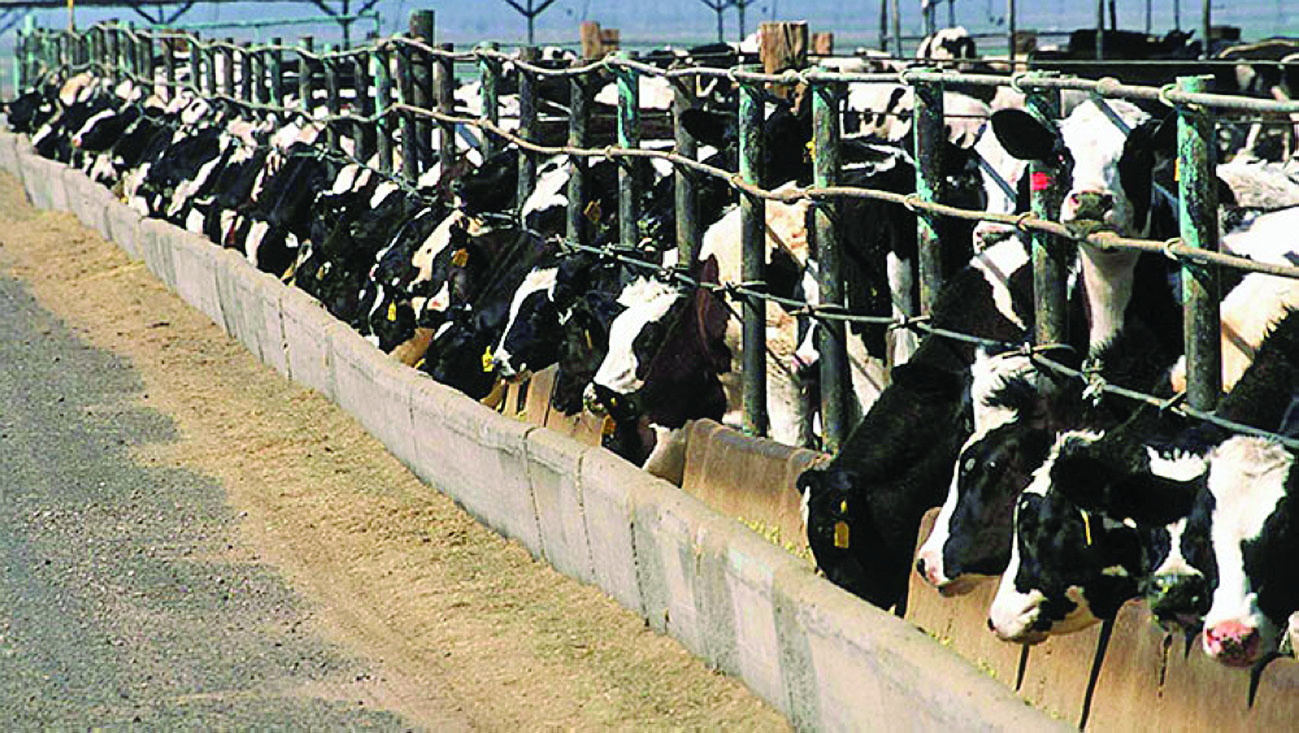
Muscat: A massive operation to improve Oman’s food security is underway, as the Sultanate brings vast quantities of livestock to set up a sustainable future for the country. 10,000 sheep have arrived by ship from Australia, 1.2 million young fish have been flown in from Turkey to populate hatcheries, and another 72 million eggs from Europe and India will be distributed to raise chickens across 250 new poultry farms in the country, in addition to 4,000 cows from North America. The mind-boggling scale of the operations all have one thing in common – to ensure Oman is self-sufficient in the future and does not rely on imports.
The spin-off will be thousands of jobs across all sectors for young Omanis.
With the Sultanate looking to diversify its economy under the Tanfeedh directives, agriculture possesses huge potential across the nation, and a food security conference was recently held by the Oman Chamber of Commerce and Industry in Salalah which detailed the efforts.
“Achieving food security is an imperative for countries seeking to achieve relative self-sufficiency in domestic food production,” said Saleh Al Shanfari, CEO of holding company Oman Food and Investment Company (OFIC).
“Given the challenges of securing supplies from producing nations on a long-term basis, it has become necessary for import-dependent nations like Oman to find suitable solutions to mitigate this risk.” OFIC also has a hand in Al Mazoon farms, a new dairy farm development in Al Buraimi Governorate. “Phase one of this farm will be complete by the end of 2018, and we will have 4,000 cows producing milk at that time,” he added.“At full efficiency, we expect to have around 25,000 cows, and that will lead to self-sufficiency.
“These cows are Holstein Friesians, which we will import from North America and Europe,” added Al Shanfari.“They are known to have the best dairy yield of all animals and are of the best genetic quality.”
“Food security is a very important concern for a country like Oman,” said Salim Al Abdali, head of the organising committee for the conference, titled Investment Prospects in Food Security:
Opportunities and Challenges. “We will be discussing the challenges and issues that we face and what needs to be done to address them.
“A lot of organisations are involved in this, including the Ministry of Agriculture and Fisheries, Oman Food Investment Company, Sultan Qaboos University, and even the Arab Authority for Agricultural Investment and Development,” he added. “Many private and public bodies from Oman and the rest of the world also took part in it.”
Dr Mohanad Hassan, operations manager of Mawashi Oman, which imported the sheep, talked about the sheer scale of the operations.
“We have a plan for breeding and trading these sheep, but until now we have not begun breeding just yet,” he told Times of Oman.
“This first batch was just to test the market and we have a plan to import and breed these sheep here. We are working on it at the moment.
“Right now, we are selling the sheep through vendors and they sell them to the public,” added Hassan. “We have chosen these high quality sheep because we have competitors in Oman. If we need to enter the market, we need to have good quality sheep. We have brought one-year-old merinos and they are of the best quality.”
Engaged in the rearing and sale of sheep in Oman, Mawashi operates a 630,000 square-metre farm in Abeyat, Barka, which is fully capable of handling up to 80,000 livestock, having been certified by the Exporter Supply Chain Assurance System from Australia.
A similar mode of testing the waters is being followed with the shipment of fish received by Oman as well.
In a first for the Turkish company, Kilic Holding flew their juvenile sea bream fish into Oman, as Oman looks to see how these fish will fare in the nation in the long-term. Dr. Adel Gindy is the department head of fisheries and marine science at A’Sharqiyah University, and holds a PhD in aquaculture from the University of Aberdeen in Scotland.
“These fish are juvenile, small fish, which is for a new project of marine cage farming in Oman,” explained Gindy.“This is a very advanced technology being used, and this is the first stage of a huge project. There are unfortunately no juvenile hatcheries in Oman and they are constructing one at the moment, otherwise you will not be able to get the numbers needed for produce.”
While the Sultanate is working towards sustainability, this will take some time.“This will also help Oman’s economy expand the capabilities of exportation of big fish,” explained Gindy.“Fish and shrimp farming is a huge industry. It is not a simple method because the techniques used are quite sophisticated. “In Oman, attempts have also been made at shrimp farming for very long,” he added.“The Ministry of Agriculture and Fisheries conducted an experiment in 1995. A lot of surveys were done into availability of shrimp in natural conditions. There is also talk about two or three projects starting very soon.”
Namaa Poultry, also run by OFIC, will be spearheading the construction of 250 poultry farms which will house 60 million hens.
Around 70 million eggs, which will then hatch into chickens, are being imported from Europe and India, to allow Oman to achieve self-sustainability in the future.